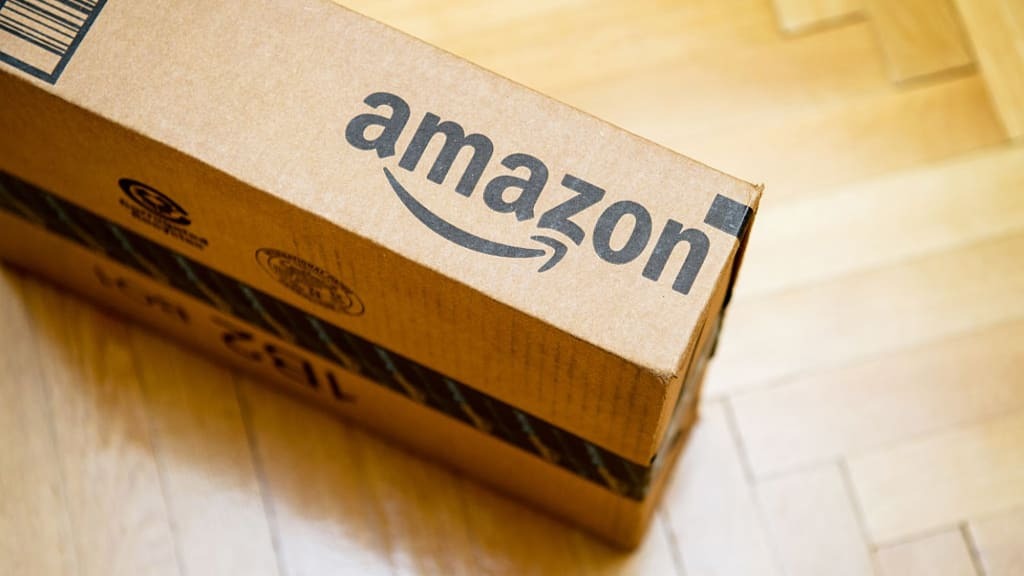
Analysis reveals that certain delivery and storage expenses for European vendors experienced an increase of over 100% between 2017 and 2023
A report has accused Amazon of being unfriendly to small businesses, citing evidence of increased fees and advertising costs for sellers. According to the report, between 2017 and 2022, Amazon’s earnings from fees charged to independent sellers in Europe, including for listings, deliveries, and digital support, tripled. This growth significantly surpassed the doubling of sales during the same period. An analysis of delivery and storage costs in the UK, France, Germany, Spain, and Italy revealed that prices had more than doubled in certain categories between 2017 and 2023.
Margarida Silva, a researcher at Somo (Centre for Research on Multinational Corporations) based in Amsterdam, accused the internet retailer of exploiting a “captive clientele.” She stated that Amazon has steadily expanded its monopolistic control over online shopping in Europe over the past two decades. Independent retailers who want to sell online have no choice but to rely on Amazon, making them essentially a captive clientele and a lucrative source of monopoly rent.
According to Somo’s analysis of Amazon EU Sarl’s financial records, income from sellers’ fees increased by 6% last year to €23.5 billion, despite a 1% decline in retail sales. It’s important to note that these fees do not include the charges sellers incur for advertising on the platform. Somo’s analysis of local Amazon subsidiaries handling ad services across Europe reveals a significant surge in Amazon’s overall advertising revenue—from €0.3 billion in 2017 to €5.4 billion in 2021. Somo estimates that 51% of that amount, equivalent to €2.75 billion, comes from independent sellers.
According to a statement made to The Guardian, a seller from the UK revealed that his fees, including advertising expenses, accounted for nearly 40% of the pre-VAT price of his products. While acknowledging that sales were satisfactory yet stagnant, he expressed dissatisfaction with the high fees and poor service provided by Amazon.
Furthermore, Amazon is currently being investigated by the UK competition watchdog to determine if it has been granting unfair advantages to its own brands and businesses utilizing its logistics services over third-party competitors on its online marketplace.
In a separate inquiry conducted by the European Commission last year, similar concerns were examined, leading to Amazon making several commitments to address these issues. These commitments included the establishment of a centralized complaint mechanism accessible to all sellers and delivery companies.
According to the retailer, utilizing Amazon’s services for storage, order fulfillment, and delivery was presented as an optional choice. The retailer claimed that these services were approximately 30% cheaper compared to standard offerings from other major logistics operators. Similarly, purchasing advertising on Amazon was also stated to be an optional decision.
Amazon expressed strong disagreement with Somo’s characterization of its market position as monopolistic. It argued that the market share figures presented by Somo did not accurately represent the retail industry’s dynamics since they failed to consider that a significant portion of retail sales occurs in physical stores. Amazon emphasized the highly competitive and dynamic nature of the retail space, stating that sellers have multiple alternatives when it comes to selecting platforms for selling their goods.
According to the report, European sellers interviewed expressed a sense of compulsion to bear the increasing costs, given the significant market share of the online marketplace. The European Commission’s report indicated that Amazon’s market share could be as high as 70% in Germany, France, and Spain.
A retailer from the UK informed Somo that sellers feel motivated to continue spending on advertising services in order to maintain visibility for their products. They compared this situation to being on a hamster wheel, where they must keep pushing forward. Slowing down would allow competitors to gain an advantage.
Although Amazon has declined to disclose specific data on sellers’ sales values in European marketplaces, the company informed Somo that independent and third-party European sellers witnessed a 65% increase in global sales, selling over 2.2 billion products in 2021. Somo noted that the revenue generated by Amazon from sellers’ listings experienced an 85% growth over the same two-year period.



